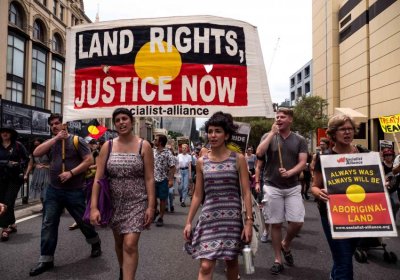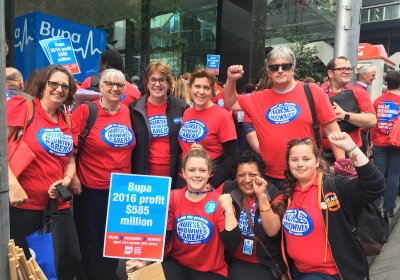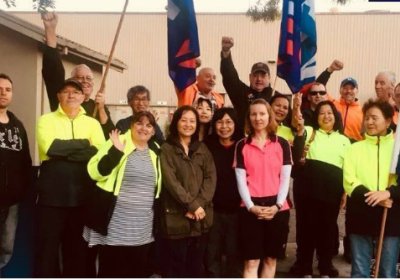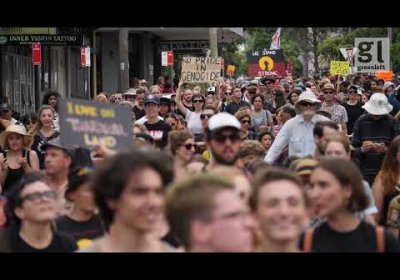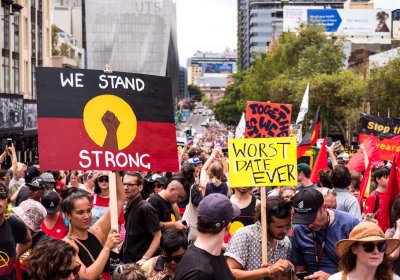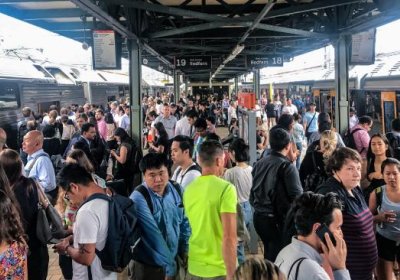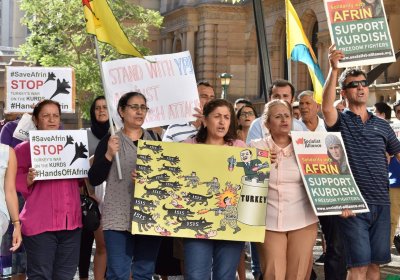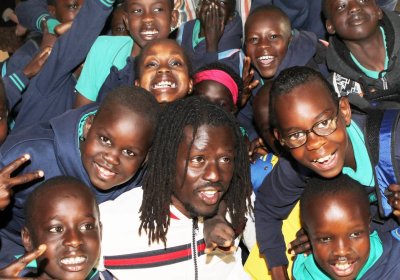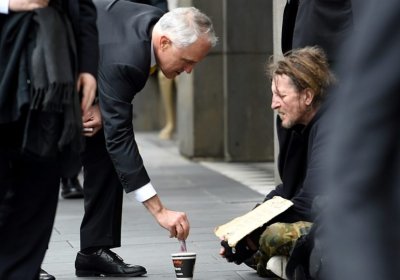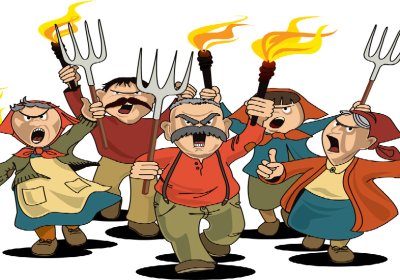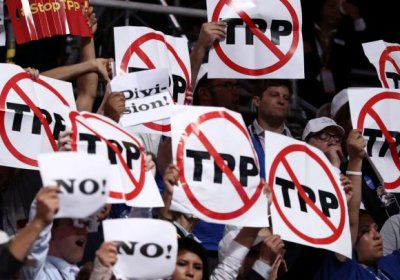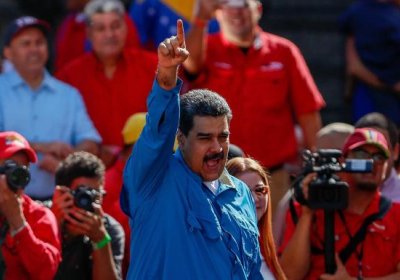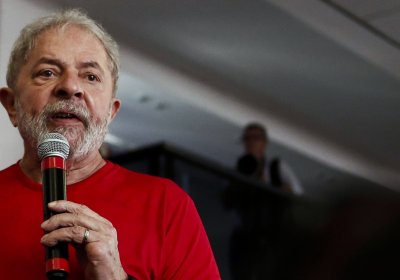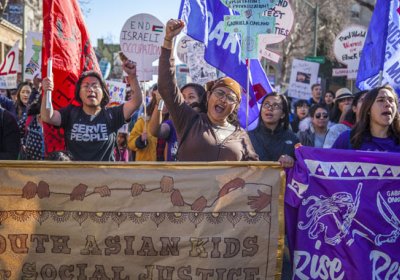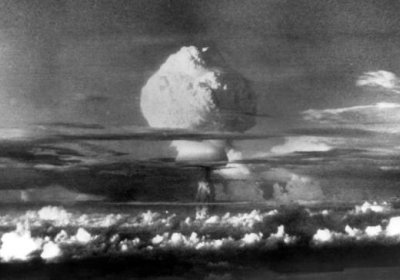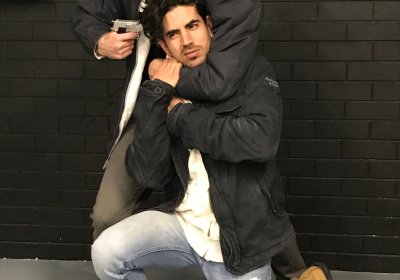In an event organised by Fighting In Resistance Equally (FIRE) on January 26, more than 10,000 people gathered at The Block in Redfern to pay their respects to Australia’s first nations and show support for Indigenous rights.
Ken Canning, chairman of the Indigenous Social Justice Association, kicked off the event by saying: “It’s really great to see all of these faces here. We want this to be a healing day and we need this to be a peaceful event.” He added: “We are peaceful people despite what the media says.”
